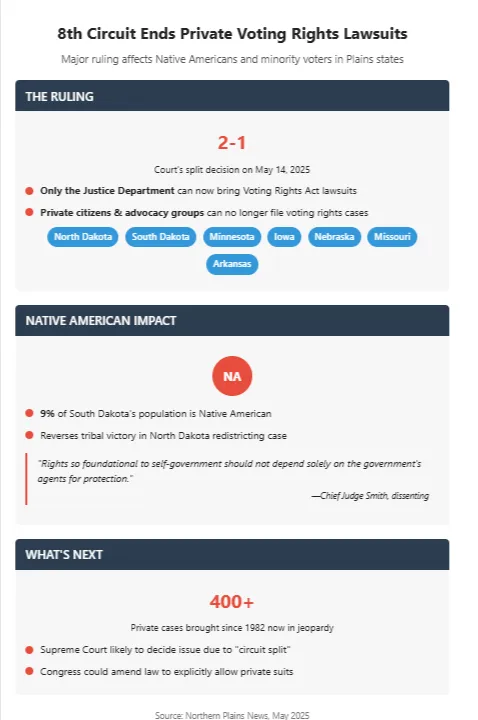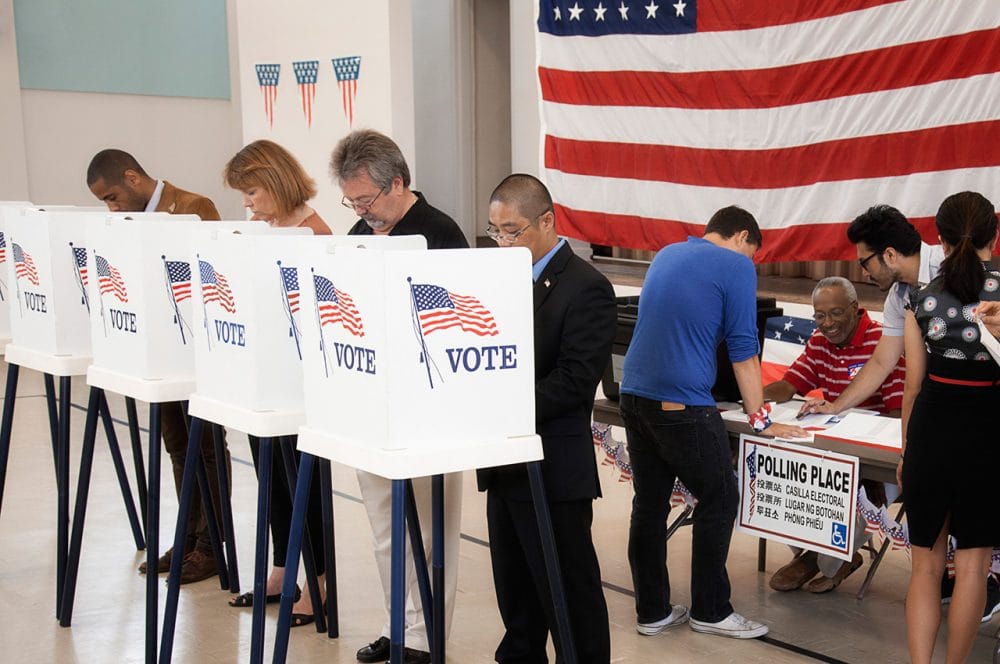WASHINGTON, D.C. – A recent federal court decision has ended the ability of private citizens and advocacy groups to challenge racially discriminatory voting laws in South Dakota and six other states, limiting local enforcement of the Voting Rights Act.
The 8th U.S. Circuit Court of Appeals ruled last week that only the U.S. Department of Justice can bring lawsuits under Section 2 of the Voting Rights Act, which bars voting practices that discriminate by race. The ruling affects South Dakota, North Dakota, Minnesota, Iowa, Nebraska, Missouri, and Arkansas.

Local Impact: Native American Representation
For decades, private lawsuits have been the primary way to challenge voting maps and election rules that dilute the power of Native American and other minority voters. In South Dakota, Native Americans make up nearly 9 percent of the population but hold a fraction of legislative seats, according to the Drum Major Institute, a nonprofit civil rights group.
“Rights so foundational to self-government and citizenship should not depend solely on the discretion or availability of the government’s agents for protection,” said Lavenski Smith, chief judge of the 8th Circuit, in his dissent.
The case began with a North Dakota redistricting dispute. Native American tribes argued new legislative maps packed and split tribal voters, weakening their influence. The 8th Circuit’s majority said Congress did not give private parties the right to sue under Section 2, breaking with decades of precedent and the practice of other federal courts.
Legal scholars and civil rights groups say this decision could end most Section 2 cases in the region, since the Justice Department brings only a handful of such lawsuits each decade.
Departure from National Norms
The 8th Circuit is now at odds with the 5th, 6th, and 11th Circuits, which all allow private enforcement of Section 2. The U.S. Supreme Court has not directly ruled on this question, but a reversal by the high court could make the restriction nationwide.
Advocacy groups warn the decision could embolden state lawmakers to pass voting restrictions with less fear of legal challenge.
“This is more than a legal setback; it is a calculated blow against the democratic process itself,” the Drum Major Institute said in a statement.
What’s Next
The immediate effect is in the seven states under the 8th Circuit. Plaintiffs may appeal to the Supreme Court. Unless Congress changes the law or the high court intervenes, private citizens in South Dakota and neighboring states have lost a key tool for protecting their voting rights.
“The ruling weakens the checks and balances embedded in the Voting Rights Act, creating a void susceptible to the intrusion of discriminatory practices and policies,” the Drum Major Institute said.


